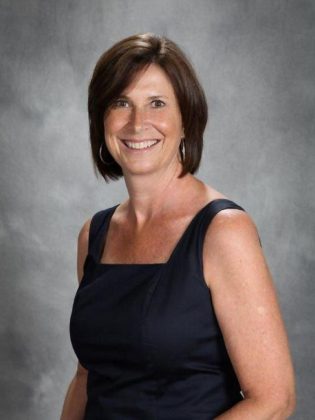
Divorce: a life-altering, heart-wrenching, monumental process that most couples never imagined they would face. Add a overflowing dose of intense grief or anger or fear or shame — or all four.
What if there was a team of people who knew the gravity of the situation, who met you with compassion and understanding, who helped you manage your emotions but still had the legal answers, who could help you figure out the finances and still put you on a path forward?
Social worker Carolyn McAlpine — one of a team of lawyers, financial advisors, and family professionals with Kawartha Collaborative Practice (KCP) — helps provide that answer for couples in the throes of divorce or who want or need to separate, but know that a long and drawn-out court proceeding is too dear on both the pocket book and their emotional well being.
“People at that point in their lives need empathy and clarity,” McAlpine says. “They need someone to understand how difficult and scary their situation is. Next to going through a death, a separation is one of the most difficult things to experience.”
There’s just no room for that in the traditional divorce proceeding, she adds, explaining courts are not equipped to deal with emotions or to offer custom solutions for a couple facing divorce.
“The role of the family professional is based around communication and helping people to look ahead to their future — what they want it to look like when they get through the divorce.”
McAlpine’s job as a family professional, she says, is to help each person focus on what is most important to them: the children, the matrimonial home, financial security, and more.

Once a couple has choosen KCP by hiring a lawyer associated with the collective and asking for the process, McAlpine is often the first member of the collaborative team to meet with both spouses to begin to address any conflict, lack of communication, or issues relating to the children.
She listens to their stories, helps them identify what is most important to them, and identifies what may be difficult during the negotiations.
Particularly if one spouse feels there is a power imbalance, or is experience intense grief or anger, there can be complication during the talks.
McAlpine says there are ways to manage this that just wouldn’t happen in a court proceeding.
And, while she offers no therapy during this process, she says clients often say they can begin to look ahead after telling their story.
She also helps clients understand the collaborative divorce process, and the need to separate emotions from the “business at hand.” Most importantly, she can inform the lawyers and financial advisor what to expect at the table.
“It’s my job to figure out how each person can best manage around the table, so that discussions are forward moving and respectful — to help support and empower you to reach solutions that meet your short and long-term goals and to keep you focused on what matters most.”
McAlpine, who has two decades of experience as a social worker, children’s advocate, and mediator, says she’s always known there needed to be an alternative to the traditional divorce proceeding.
“Courts are backed up and divorce cases can go on for many years,” she says. “I don’t see that changing. And people will walk away from court feeling unheard, devalued and resentful. They won’t be able to move on. They’ve had no real resolution.
“Traditional divorce doesn’t ask what are you worried about. There’s no bargaining, no discussion of what would work and what wouldn’t, no consideration of the clients’ level of anxiety, no consideration of the subtleties or of the couple’s communication.
“The collaborative offers a safe place to move forward where everyone’s voice is heard. And we’re usually able to work together so each person’s most important goals are met.”
If you are facing a separation or a divorce and don’t want to go through the traditional court process, call 705-928-3218 or visit www.kawarthacollaborative.com. You can also find them on Facebook.


























